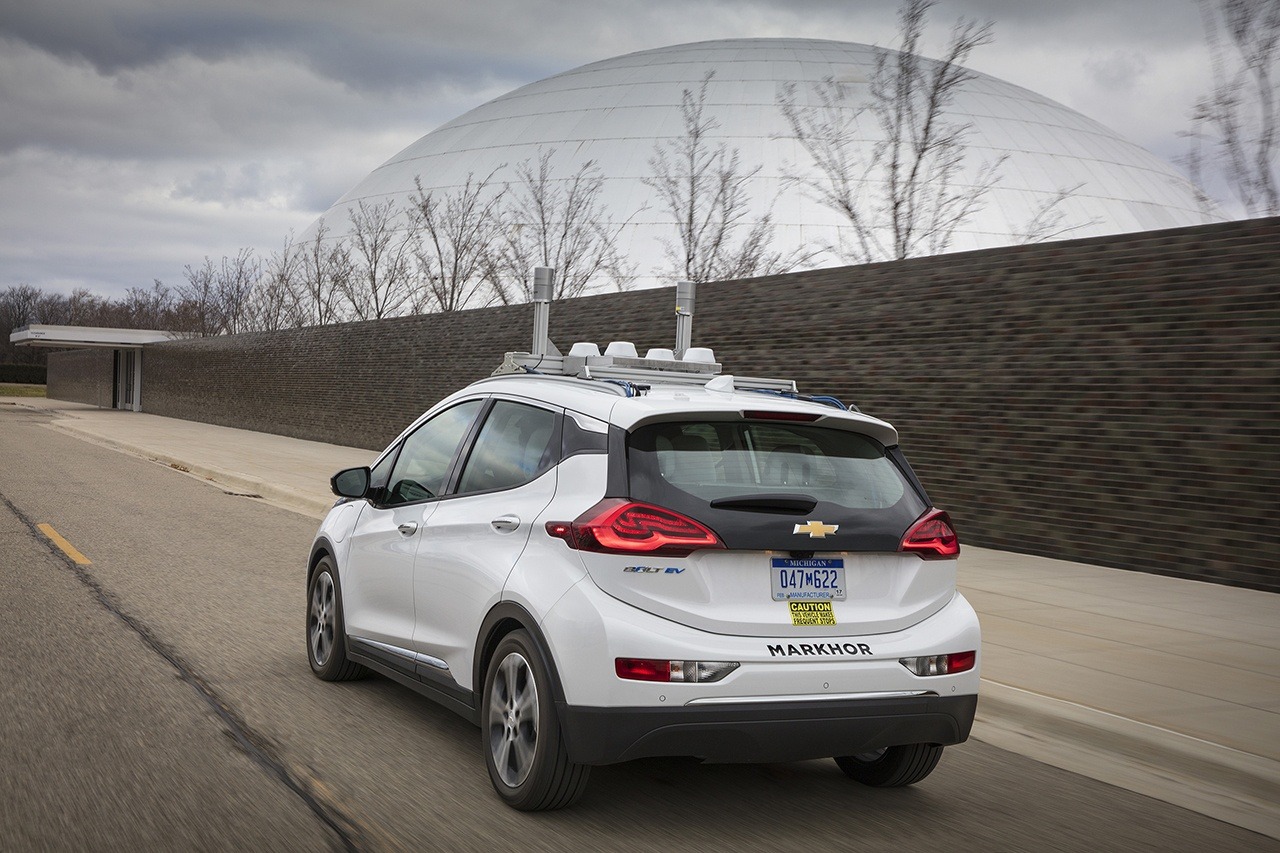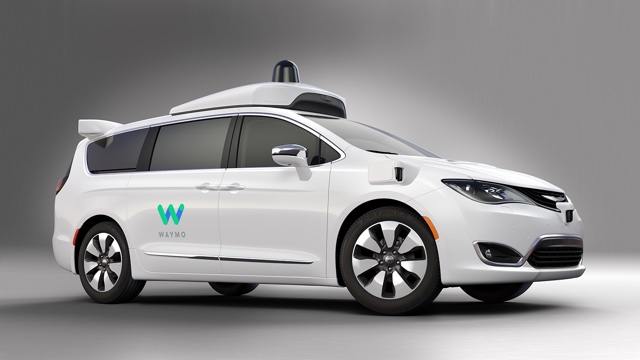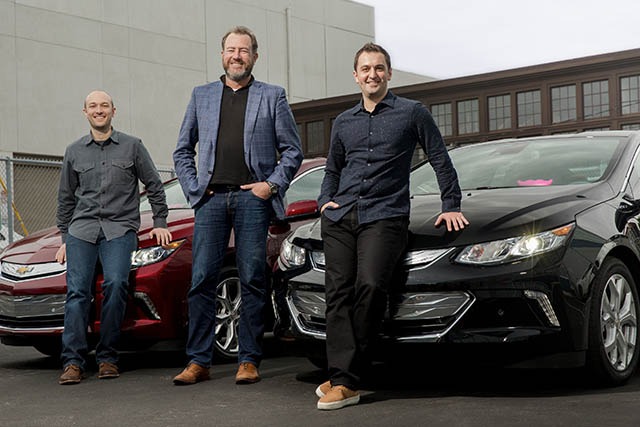Search the Community
Showing results for tags 'Self-Driving Vehicles'.
-
Developing autonomous vehicles in sunny, dry locales like Phoenix, Arizona has proven to be difficult due to numerous variables such as traffic and human behavior. But an upcoming study from Michigan State University reveals that autonomous technologies still have a number of hurdles as testing begins in areas with changing conditions. Automotive News had the chance to speak with Hayder Radha, an MSU professor of electrical and computer engineering who oversaw the upcoming study. The findings reveal that the algorithms that are used to distill the various bits of information coming from the cameras and radar/lidar sensors have issues when it lightly rains. "When we run these algorithms, we see very noticeable, tangible degradation in detection. Even low-intensity rain can really create some serious problems, and as you increase the intensity, the performance of what we consider state-of-the-art mechanisms can almost become paralyzed," said Radha. "Once you throw in a few drops of rain, they get confused. It's like putting eyedrops in your eye and expecting to see right away." Researchers looked at various parameters in their study, including the size of the raindrops and the effect of wind. Using a scale that ranged from a clear day to a major downpour, the study revealed that algorithms failed to detect as much "as 20 percent of objects when the rain intensity was 10 percent of the worst-case scenario." This increased to 40 percent when the intensity of the rain increased to 30 percent. Other weather-related issues that were revealed in MSU's study, The high-resolution maps that autonomous systems to determine their location may need to be updated due to the changing seasons. "You can imagine in environments where there are a lot of leaves on trees or on shrubs close to the road, they are an essential part of the map. So summer and winter are completely different. When they fall down in winter, you have nothing to work with. So that tells you that for this technology to be robust, it needs to be developed in different conditions than you see only in Arizona and Silicon Valley," explained Radha. Cold temperatures play havoc with lidar sensors. The study reveals that the amount of "poor-quality or irrelevant returns from lidar sensors" increased as if the temperature was at 10 degrees Fahrenheit or less. Some of these issues can be addressed by getting more information from radar and lidar as engineers develop various ways to use them to classify objects. But Radha explains the big improvements will come when self-driving tech is tested in other locations such as Michigan and Pittsburgh to name a couple. Source: Automotive News (Subscription Required) View full article
- 8 replies
-
- self-driving vehicles
- study
-
(and 1 more)
Tagged with:
-

Crummy Weather May Pose Big Issues for Self-Driving Cars
William Maley posted an article in Automotive Industry
Developing autonomous vehicles in sunny, dry locales like Phoenix, Arizona has proven to be difficult due to numerous variables such as traffic and human behavior. But an upcoming study from Michigan State University reveals that autonomous technologies still have a number of hurdles as testing begins in areas with changing conditions. Automotive News had the chance to speak with Hayder Radha, an MSU professor of electrical and computer engineering who oversaw the upcoming study. The findings reveal that the algorithms that are used to distill the various bits of information coming from the cameras and radar/lidar sensors have issues when it lightly rains. "When we run these algorithms, we see very noticeable, tangible degradation in detection. Even low-intensity rain can really create some serious problems, and as you increase the intensity, the performance of what we consider state-of-the-art mechanisms can almost become paralyzed," said Radha. "Once you throw in a few drops of rain, they get confused. It's like putting eyedrops in your eye and expecting to see right away." Researchers looked at various parameters in their study, including the size of the raindrops and the effect of wind. Using a scale that ranged from a clear day to a major downpour, the study revealed that algorithms failed to detect as much "as 20 percent of objects when the rain intensity was 10 percent of the worst-case scenario." This increased to 40 percent when the intensity of the rain increased to 30 percent. Other weather-related issues that were revealed in MSU's study, The high-resolution maps that autonomous systems to determine their location may need to be updated due to the changing seasons. "You can imagine in environments where there are a lot of leaves on trees or on shrubs close to the road, they are an essential part of the map. So summer and winter are completely different. When they fall down in winter, you have nothing to work with. So that tells you that for this technology to be robust, it needs to be developed in different conditions than you see only in Arizona and Silicon Valley," explained Radha. Cold temperatures play havoc with lidar sensors. The study reveals that the amount of "poor-quality or irrelevant returns from lidar sensors" increased as if the temperature was at 10 degrees Fahrenheit or less. Some of these issues can be addressed by getting more information from radar and lidar as engineers develop various ways to use them to classify objects. But Radha explains the big improvements will come when self-driving tech is tested in other locations such as Michigan and Pittsburgh to name a couple. Source: Automotive News (Subscription Required)- 8 comments
-
- self-driving vehicles
- study
-
(and 1 more)
Tagged with:
-
Towards the end of Obama presidency, the administration unveiled guidelines for testing and deployment of self-driving cars in the US. But there is a new presidency in the White House and that means things will be changing - although details are scarce as to how. U.S. Transportation Secretary Elaine Chao said in Detroit yesterday the Department of Transportation would revisit and revise the guidelines put forth by the previous administration within the next few months. "The pressure is mounting for the federal government to do something" about autonomous vehicles, said Chao. "We don't want rules that impede future technological advances." Chao didn't go into details about the changes that would be made or how it would differ from those made under the Obama presidency. The current guidelines introduced last fall includes a 15-point assessment that automakers would use to determine whether an autonomous vehicle was ready to go on the road or not. The assessment includes such items as privacy and validation methods. Automakers have voiced concerns on the guidelines, saying it would delay the testing by months and requires them to hand over data. Source: Reuters View full article
- 2 replies
-
- department of transportation
- dot
- (and 3 more)
-

Trump Administration To Revisit Self-Driving Guidelines
William Maley posted an article in Automotive Industry
Towards the end of Obama presidency, the administration unveiled guidelines for testing and deployment of self-driving cars in the US. But there is a new presidency in the White House and that means things will be changing - although details are scarce as to how. U.S. Transportation Secretary Elaine Chao said in Detroit yesterday the Department of Transportation would revisit and revise the guidelines put forth by the previous administration within the next few months. "The pressure is mounting for the federal government to do something" about autonomous vehicles, said Chao. "We don't want rules that impede future technological advances." Chao didn't go into details about the changes that would be made or how it would differ from those made under the Obama presidency. The current guidelines introduced last fall includes a 15-point assessment that automakers would use to determine whether an autonomous vehicle was ready to go on the road or not. The assessment includes such items as privacy and validation methods. Automakers have voiced concerns on the guidelines, saying it would delay the testing by months and requires them to hand over data. Source: Reuters- 2 comments
-
- department of transportation
- dot
- (and 3 more)
-

GM and Lyft Are Planning To Test Self-Driving Taxis
William Maley posted an article in General Motors
Only a few months after General Motors and Lyft formed an alliance, the two are planning to test a fleet of self-driving Chevrolet Bolt electric taxis on public roads. Specific details about the testing are still be working out, but a Lyft executive said it will include customers in an undisclosed city. Customers will be able to opt in or out of the program when hailing a Lyft cab from the company's application. Riders will be able to contact an advisor from OnStar to ask questions or provide help if a problem arises. The self-driving tech will come from Cruise Automation Inc., a developer of autonomous driving tech that was acquired back in March. “We will want to vet the autonomous tech between Cruise, GM and ourselves and slowly introduce this into markets,” said Taggart Matthiesen, Lyft’s product director. That will “ensure that cities would have full understanding of what we are trying to do here.” There are still a number of regulation hurdles Lyft has to work out. In an effort to remove some of the hurdles, Lyft will still have drivers in the vehicles to intervene. But the end goal is to remove the driver. The testing is expected to begin within a year. Source: The Wall Street Journal (Subscription Required)- 1 comment
-
- General Motors
- GM
-
(and 3 more)
Tagged with:
-
Only a few months after General Motors and Lyft formed an alliance, the two are planning to test a fleet of self-driving Chevrolet Bolt electric taxis on public roads. Specific details about the testing are still be working out, but a Lyft executive said it will include customers in an undisclosed city. Customers will be able to opt in or out of the program when hailing a Lyft cab from the company's application. Riders will be able to contact an advisor from OnStar to ask questions or provide help if a problem arises. The self-driving tech will come from Cruise Automation Inc., a developer of autonomous driving tech that was acquired back in March. “We will want to vet the autonomous tech between Cruise, GM and ourselves and slowly introduce this into markets,” said Taggart Matthiesen, Lyft’s product director. That will “ensure that cities would have full understanding of what we are trying to do here.” There are still a number of regulation hurdles Lyft has to work out. In an effort to remove some of the hurdles, Lyft will still have drivers in the vehicles to intervene. But the end goal is to remove the driver. The testing is expected to begin within a year. Source: The Wall Street Journal (Subscription Required) View full article
- 1 reply
-
- General Motors
- GM
-
(and 3 more)
Tagged with:




